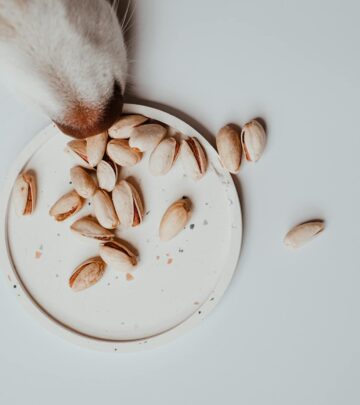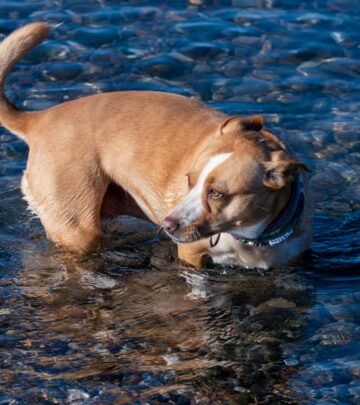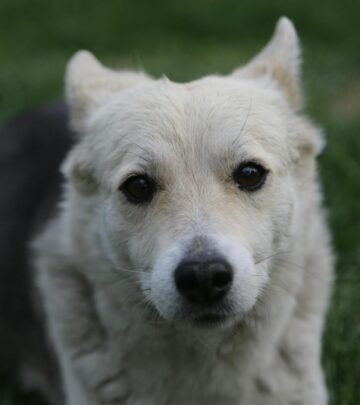Can Dogs Eat Honey? Risks, Benefits, and Safe Uses

Honey’s natural sweetness is beloved by people worldwide, but many dog owners wonder whether this ingredient is a safe or healthy treat for canine companions. This comprehensive guide explores whether dogs can eat honey, its potential benefits and risks, how much honey is safe, and frequently asked questions to help you make informed decisions about your dog’s diet.
Is Honey Safe for Dogs?
Honey is generally considered safe for healthy adult dogs when fed in small quantities. It contains natural sugars and trace amounts of vitamins and minerals that may offer certain health benefits, but overconsumption or feeding honey to the wrong dogs can cause health concerns. Always consult with your veterinarian before introducing new foods into your dog’s diet, especially if your pet has underlying health conditions.
Key Points on Honey and Dogs
- Plain honey is non-toxic to dogs when offered in moderation.
- Honey contains natural sugars and provides trace vitamins and minerals.
- Overfeeding honey can lead to short-term and long-term health problems.
- Some dogs—such as puppies, the elderly, immunocompromised, overweight, or diabetic dogs—should avoid honey entirely.
Nutritional Profile of Honey
Honey is a complex substance made by bees using nectar from flowers. It’s composed primarily of sugars, with small amounts of nutrients:
- Sugars: Fructose, glucose, and other sugars give honey its sweet taste and high caloric content.
- Vitamins and Minerals: Contains trace amounts of vitamins such as B vitamins, and minerals like calcium, potassium, and magnesium.
- Antioxidants: Raw honey provides antioxidants, which may boost overall health.
Potential Health Benefits of Honey for Dogs
Many pet owners use honey for its perceived holistic properties. While some human studies suggest benefits, scientific evidence for dogs remains limited. The following are possible advantages:
- Soothes Sore Throats and Coughs: The thick consistency of honey may help coat and relieve minor throat irritation.
- Promotes Wound Healing: Manuka honey is sometimes used topically for minor cuts or burns, owing to its antimicrobial qualities.
- Source of Energy: Natural sugars provide a quick energy boost for active, healthy dogs.
- May Aid Allergies (Anecdotal): Some people give local honey to help with allergies, but there is insufficient scientific evidence to support this in dogs.
Risks and Precautions: When to Avoid Honey
Despite its benefits, honey is not appropriate for all dogs and can pose health risks if fed irresponsibly:
- High in Sugar: The sugar in honey can contribute to obesity, dental problems, and metabolic disorders with regular or excessive consumption.
- Botulism Risk for Puppies: Unpasteurized honey may harbor botulism spores, which can cause severe illness in puppies under 12 months or dogs with compromised immune systems.
- Not for Diabetic Dogs: Honey has a high glycemic index and can spike blood sugar levels, posing dangers for diabetic dogs. Alternative treats are recommended for these pets.
- Allergic Reactions: Dogs allergic to bees may experience allergic reactions from certain honeys. Watch for signs like itching, swelling, or digestive upset.
- Dental Health: The sticky, sugary nature of honey can foster bacterial growth in the mouth and contribute to tooth decay, especially if not followed by oral hygiene.
Table: Dogs Who Should Avoid Honey
| Group | Reason to Avoid Honey |
|---|---|
| Puppies (<12 months) | Risk of botulism from spores in raw honey |
| Diabetic Dogs | High sugar content can cause hyperglycemia |
| Overweight Dogs | High-calorie treat may worsen weight issues |
| Dogs with Bee Allergies | Potential for allergic reactions |
| Seniors/Immunocompromised | Less able to fight possible bacterial spores |
How Much Honey Can Dogs Eat?
Moderation is key. Generally, a teaspoon of honey per day is a safe amount for most medium to large adult dogs, and even less for smaller breeds. This serving contains about 12.76 calories and 3.4 grams of sugar. Always factor honey into your dog’s daily calorie intake and treat quote, and consult your veterinarian for specific recommendations.
General Guidelines for Feeding Honey to Dogs
- Start with a small amount (1/2 teaspoon to 1 teaspoon, depending on size).
- Only feed honey as an occasional treat, not a daily supplement.
- Monitor your dog for any adverse reactions after introducing honey.
- Brush your dog’s teeth after feeding honey to prevent tooth decay.
What Happens If My Dog Eats Too Much Honey?
If your dog consumes an excessive amount of honey, watch for the following symptoms:
- Vomiting
- Diarrhea
- Lethargy
- Loss of appetite
These symptoms are usually short-lived, but large quantities of honey over time can result in more serious issues, including:
- Obesity
- Arthritis
- Heart disease
- Diabetes
- Pancreatitis
- Dental disease
If your dog eats a significant amount of honey or displays worrying symptoms, contact your veterinarian promptly for personalized advice.
Special Considerations: Are All Types of Honey Safe?
Pet owners may consider various types of honey. Here are the most common options:
- Raw Honey: May have more nutrients but also carries a higher risk of botulism spores. Avoid for puppies and immunocompromised dogs.
- Manuka Honey: Sourced from New Zealand, it is prized for potential antimicrobial properties. When applied topically, it may support wound healing in dogs.
- Plant-Based/ Vegan Honey: Some plant-based honeys are available and can be safe in small quantities, but check for additives and consult your vet before use.
Ways to Feed Honey to Dogs
If your veterinarian approves, you can offer honey to your dog in a variety of ways:
- Straight from the spoon, in moderation
- Drizzled over kibble as a special treat
- Mixed into homemade dog treats
- Combined with plain yogurt or peanut butter for a tasty, occasional snack
- Applied topically (e.g., Manuka honey for minor wounds)
Always remember to avoid feeding honey to dogs with the risk factors outlined above, and monitor for signs of digestive upset.
Sugar Substitutes and Honey Alternatives
For dogs who cannot tolerate honey, try these lower-sugar treats:
- Carrot sticks
- Sliced cucumbers
- Green beans
- Fresh blueberries
- Small pieces of apple (without seeds)
These alternatives provide vitamins and fiber without unnecessary sugar or calories.
Frequently Asked Questions (FAQs) About Honey for Dogs
Can puppies have honey?
No, puppies under 12 months should not be given honey. Honey can contain botulism spores that may cause dangerous illness in puppies whose immune systems are not yet fully developed.
Is honey toxic for dogs?
No, honey is not toxic to dogs. For healthy adult dogs, small amounts of honey are generally safe and non-toxic. However, moderation is essential.
Can dogs eat honey for allergies?
There is not enough scientific evidence to confirm that honey addresses dog allergies. While feeding a dog small amounts of local honey is unlikely to worsen allergies, its use as an allergy remedy is not supported by robust research.
Is Manuka honey good for dogs?
Yes, Manuka honey can be used for dogs under veterinarian guidance. It may promote digestive health and is sometimes applied topically for wound care because of its antimicrobial properties.
How often can I feed my dog honey?
Small amounts of honey—no more than a teaspoon for medium or large dogs—can be fed once or twice a week as a treat. Incorporate honey into your dog’s treat quota and adjust the main diet accordingly.
Can diabetic dogs eat honey?
No, diabetic dogs should not consume honey due to its high sugar content, which can lead to dangerous spikes in blood sugar levels.
Do all dogs like honey?
Most dogs enjoy the sweet flavor of honey, but some may be indifferent. Always introduce new foods gradually and watch for any adverse reactions.
Tips for Safely Using Honey in Your Dog’s Diet
- Consult your veterinarian before adding honey to your dog’s meals.
- Use only pure, unflavored honey without artificial sweeteners, especially xylitol, which is toxic to dogs.
- Monitor your dog for symptoms of digestive upset or allergies.
- Brush your dog’s teeth after feeding honey to reduce risk of cavities.
- Limit honey to special occasions, not as a staple food.
Summary: Should You Feed Honey to Your Dog?
Honey is safe for most healthy adult dogs in moderation and may provide some minor health benefits, but it remains a treat—not a dietary essential. Avoid honey for puppies, diabetic, overweight, senior, or immunocompromised dogs. If you choose to share honey, do so sparingly and with veterinary guidance. As with all treats, balance is the key to a long, healthy, and happy life for your canine companion.
References
- https://www.akc.org/expert-advice/nutrition/can-dogs-eat-honey/
- https://www.pumpkin.care/blog/can-dogs-eat-honey/
- https://mellodyfoods.com/blogs/honey/can-dogs-eat-plant-based-honey-benefits-risks-guidelines
- https://www.chewy.com/education/dog/food-and-nutrition/can-dogs-have-honey
- https://www.pawlicy.com/blog/can-dogs-eat-honey/
Read full bio of medha deb

















Community Experiences
Join the conversation and become a part of our empowering community! Share your stories, experiences, and insights to connect with other beauty, lifestyle, and health enthusiasts.